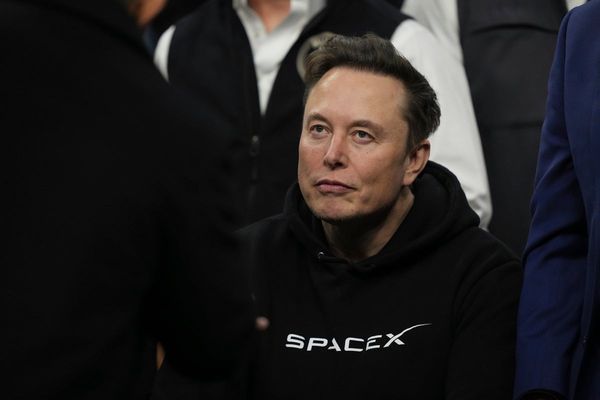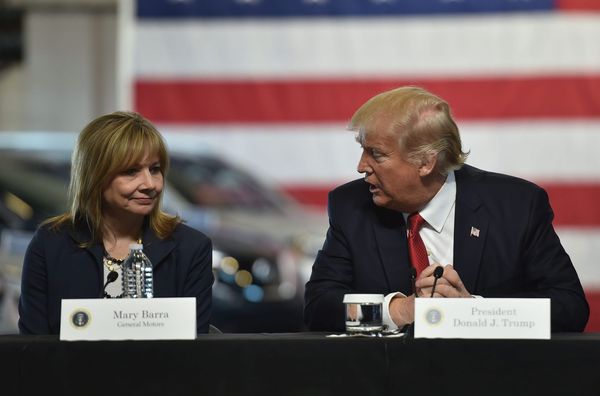Bolivia’s President Luis Arce appears to have seen off an attempt to topple his leftwing government after a dramatic afternoon in which heavily armed troops, seemingly commanded by a top army general, stormed the government palace before beating a retreat and seeing their alleged leader detained.
On Wednesday afternoon Arce urged citizens to take to the streets to defend the country’s democracy from an apparent coup attempt, after troops seized control of a central square in La Paz which houses government buildings.
“We need the Bolivian people to mobilise and organise themselves against this coup d’état and in favour of democracy,” Arce said in a video message filmed at the Great House of the People, the official presidential residence in Bolivia’s de facto capital of La Paz.
Flanked by members of his cabinet, Arce declared: “We cannot allow, once again, attempted coups to claim Bolivian lives.”
“Long live the people of Bolivia! Long live democracy!” the ministers shouted, thrusting their left fists into the air. “Long live our president, Luis Arce!”
The comments came after other members of Arce’s administration and Latin American leaders claimed an army-led putsch was under way.
“We denounce to the international community that a coup attempt is unfolding against our democratically elected government,” the vice-president, David Choquehuanca, tweeted on Wednesday afternoon.
In a video message, the foreign minister, Celinda Sosa Lunda, claimed some army units had launched an attack on “democracy, peace and national security”.
Former president Evo Morales also sounded the alarm as troubling images of the disturbances spread on social media. Morales urged supporters to take to the streets and block roads to oppose the alleged coup attempt, which he blamed on the recently sacked army commander, Gen Juan José Zúñiga, who was reportedly removed from his post on the eve of Wednesday’s turmoil.
“We will not allow the armed forces to violate democracy and intimidate the people,” wrote Morales, who was Bolivia’s first president of Indigenous descent but had to flee the country in 2019 after what supporters call a US-backed coup. Morales returned from exile after Arce’s election the following year.
On the eve of his 2020 inauguration, Arce, who is a UK-educated economist, told the Guardian: “We have reclaimed democracy for Bolivia, and our message is that we will not tolerate any kind of de facto dictatorial regime or coup in Latin America.”
On Wednesday afternoon, that democracy looked in peril as television footage showed masked members of the military police forcing their way into the Palacio Quemado.
The newspaper Los Tiempos quoted the head of Bolivia’s army as saying that Arce remained president “for the time being”, although as the hours passed Arce seemed to reassert control. The president confronted Zúñiga as he entered the palace and was filmed instructing the general to stand his troops down: “I am your captain. Obey my orders.”
By late afternoon Arce had named a new military high command and reports suggested troops and armoured vehicles were withdrawing from Plaza Murillo in La Paz’s historic centre, where the seemingly botched rebellion had played out.
The new army chief, José Wilson Sánchez Velásquez, appeared on state television alongside Arce and ordered the troops who had hit the streets to return to barracks. As he spoke, the president’s supporters chanted: “Democracy! Democracy! Democracy!”
By the evening there were reports that Zúñiga had been detained on suspicion of the crimes of terrorism and armed uprising at the entrance to the general staff headquarters in La Paz. Footage showed him being driven away in a white police pickup truck and later on police brought him to press conference in handcuffs.
Tensions have been building in Bolivia ahead of general elections in 2025, with leftist Morales planning to run against former ally Arce, creating a major rift in the ruling socialist party and wider political uncertainty.
Zúñiga said recently that Morales should not be able to return as president and threatened to block him if he attempted to do so, which led Arce to remove Zúñiga from his post.
Ahead of the attack on the presidential palace, Zúñiga had addressed reporters in the square and cited growing anger in the landlocked country, which has been battling an economic slump with depleted central bank reserves and pressure on the boliviano currency as gas exports have dried up.
“Stop destroying, stop impoverishing our country, stop humiliating our army,” he said in full uniform, flanked by soldiers, insisting the action being taken was supported by the public.
As the drama played out, Latin American leaders from across the political spectrum spoke out against the attempted power grab. Mexico’s leftwing president-elect, Claudia Sheinbaum, denounced what she called an “attack against democracy”. “Our unconditional support to President Luís Arce and his people,” she wrote on social media.
Venezuela’s president, Nicolás Maduro, urged Bolivians “to defend their democracy, their constitution and their president … No to fascism! No to putschism! … How dare they try to impose a coup in the 21st century,” Maduro said.
Brazil’s government reportedly convened an emergency meeting to discuss the crisis with President Luiz Inácio Lula da Silva telling reporters: “I want democracy to prevail in Latin America. Coups have never worked out.”
Speaking in neighbouring Paraguay, the head of the Organization of American States, Luis Almagro, said it would not tolerate “any kind of rupture of the legitimate constitutional order in Bolivia”.
There was also condemnation from Europe, where the Spanish prime minister, Pedro Sánchez, called for democracy and the rule of law to be respected. “Spain strongly condemns the military movements in Bolivia,” Sánchez tweeted.
The British ambassador in Bolivia, Richard Porter, said he was carefully monitoring the situation, adding: “The United Kingdom condemns any attempt to take power by unconstitutional means.”







